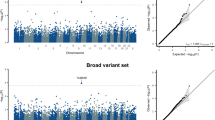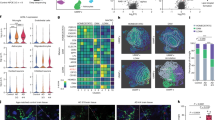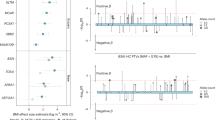Abstract
The apolipoprotein E (APOE, gene; apoE, protein) type 4 isoform is a well-established risk factor for late-onset Alzheimer's disease (AD), and new data suggest that APOE promoter polymorphisms might also modulate AD risk, perhaps by altering transcription of the APOE gene. The current study was undertaken to determine whether the presence of the APOE promoter −491AA genotype (that appears to increase the risk for AD) is associated with an increase in the levels of apoE in brain tissue. Among 40 control and 20 autopsy-confirmed AD brain samples, levels of apoE were increased in the frontal cortex of AD cases (P < 0.001), consistent with the well-recognized up-regulation of APOE expression in reactive astrocytes. Among controls, the −491A allele appeared to impart a gene dose-dependent effect on the levels of apoE in frontal cortex. The levels of apoE in the brains of AD patients with the −491AA genotype were increased as compared to control subjects with the same genotype (P< 0.001). These data support the notion that the −491AA APOE promoter genotype is associated with elevated brain apolipoprotein E levels, suggesting that the risk for AD may be modulated by the apoE protein level as well as by the apoE protein isoform.
This is a preview of subscription content, access via your institution
Access options
Subscribe to this journal
Receive 12 print issues and online access
$259.00 per year
only $21.58 per issue
Buy this article
- Purchase on Springer Link
- Instant access to full article PDF
Prices may be subject to local taxes which are calculated during checkout


Similar content being viewed by others
References
Mahley RW, Innerarity TL, Rall SC Jr, Weisgraber KH . Plasma lipoproteins: apolipoprotein structure and function J Lipid Res 1984; 25: 1277–1294
Mahley RW . Apolipoprotein E: cholesterol transport protein with expanding role in cell biology Science 1988; 240: 622–630
Pitas RE, Boyles JK, Lee SH et al. Astrocytes synthesize apolipoprotein E and metabolise apolipoprotein E-containing lipoproteins Biochim Biophys Acta 1987; 917: 148–161
Zannis VI, Just PW, Breslow JL . Human apolipoprotein E isoprotein subclasses are genetically determined Am J Hum Genet 1981; 33: 11–24
Strittmatter WJ, Weisgraber KH, Huang DY et al. Binding of human apolipoprotein E to synthetic amyloid beta peptide: isoform-specific effects and implications for late-onset Alzheimer disease Proc Natl Acad Sci USA 1993; 90: 8098–8102
Martins RN, Clarnette R, Fisher C et al. ApoE genotypes in Australia: roles in early and late onset Alzheimer's disease and Down's syndrome Neuroreport 1995; 6: 1513–1516
Corder EH, Saunders AM, Strittmatter WJ et al. Gene dose of apolipoprotein E type 4 allele and the risk of Alzheimer's disease in late onset families Science 1993; 261: 921–923
Taddei K, Clarnette R, Gandy SE, Martins RN . Increased plasma apolipoprotein E (apoE) levels in Alzheimer's disease Neurosci Lett 1997; 223: 29–33
Laws SM, Taddei K, Martins G et al. The −491AA polymorphism in the APOE gene is associated with increased plasma apoE levels in Alzheimer's disease Neuroreport 1999; 10: 879–882
Artiga MJ, Bullido MJ, Sastre I et al. Allelic polymorphisms in the transcriptional regulatory region of apolipoprotein E gene FEBS Lett 1998; 421: 105–108
Bullido MJ, Artiga MJ, Recuero M et al. A polymorphism in the regulatory region of APOE associated with risk for Alzheimer's dementia Nature Genet 1998; 18: 69–71
Lambert JC, Berr C, Pasquier F et al. Pronounced impact of Th1/E47cs mutation compared with −491 AT mutation on neuronal APOE gene expression and risk of developing Alzheimer's disease Hum Mol Gen 1998; 7: 1511–1516
Lambert JC, Pasquier F, Cottel D et al. A new polymorphism in the APOE promoter associated with risk of developing Alzheimer's disease Hum Mol Gen 1998; 7: 533–540
Hixson JE, Vernier DT . Restriction of human apolipoprotein E by gene amplification and cleavage with Hla1 J Lipid Res 1990; 31: 545–548
Wenham PR, Price WH, Blundell G . Apolipoprotein E genotyping by one-stage PCR Lancet 1991; 337: 1158–1159
Diedrich JF, Minnigan H, Carp RI et al. Neuropathological changes in scrapie and Alzheimer's disease are associated with increased expression of apolipoprotein E and cathepsin D in astrocytes J Virol 1991; 65: 4759–4768
Wang JC, Kwon JM, Shah P et al. Effect of APOE genotype and promoter polymorphism on risk of Alzheimer's disease Neurology 2000; 55: 1644–1649
Yamada T, Kondo A, Takamatsu J, Tateishi J, Goto I . Apolipoprotein E mRNA in the brains of patients with Alzheimer's disease J Neurol Sci 1995; 129: 56–61
Yamagata K, Urakami K, Ikeda K et al. High expression of apolipoprotein E mRNA in the brains with sporadic Alzheimer's disease Dement Geriatr Cogn Disord 2001; 12: 57–62
Zarow C, Victoroff J . Increased apolipoprotein E mRNA in the hippocampus in Alzheimer disease and in rats after entorhinal cortex lesioning Exp Neurol 1998; 149: 79–86
Pirttila T, Soininen H, Heinonen O et al. Apolipoprotein E (apoE) levels in brains from Alzheimer disease patients and controls Brain Res 1996; 722: 71–77
Bales KR, Verina T, Dodel RC et al. Lack of apolipoprotein E dramatically reduces amyloid beta-peptide deposition Nat Genet 1997; 17: 263–264
Bales KR, Verina T, Cummins DJ et al. Apolipoprotein E is essential for amyloid deposition in the APP(V717F) transgenic mouse model of Alzheimer's disease Proc Natl Acad Sci USA 1999; 96: 15233–15238
Holtzman DM, Bales KR, Tenkova T et al. Apolipoprotein E isoform-dependent amyloid deposition and neuritic degeneration in a mouse model of Alzheimer's disease Proc Natl Acad Sci USA 2000; 97: 2892–2897
Holtzman DM, Fagan AM, Mackey B et al. Apolipoprotein E facilitates neuritic and cerebrovascular plaque formation in an Alzheimer's disease model Ann Neurol 2000; 47: 739–747
Lambert JC, Mann D, Goumidi L et al. Effect of the APOE promoter polymorphisms on cerebral amyloid peptide deposition in Alzheimer's disease Lancet 2001; 357: 608–609
Acknowledgements
This project was supported by the McCusker Foundation for Alzheimer's Disease Research, Hollywood Private Hospital, Department of Veteran Affairs and US NIH Program AG10491. SM Laws is a recipient of a Dora Lush (Biomedical) postgraduate research scholarship from the NHMRC (Australia).
Author information
Authors and Affiliations
Corresponding author
Rights and permissions
About this article
Cite this article
Laws, S., Hone, E., Taddei, K. et al. Variation at the APOE −491 promoter locus is associated with altered brain levels of apolipoprotein E. Mol Psychiatry 7, 886–890 (2002). https://doi.org/10.1038/sj.mp.4001097
Received:
Revised:
Accepted:
Published:
Issue Date:
DOI: https://doi.org/10.1038/sj.mp.4001097
Keywords
This article is cited by
-
Transcriptional regulation and its misregulation in Alzheimer’s disease
Molecular Brain (2013)
-
Clearance mechanisms of Alzheimer's amyloid-β peptide: implications for therapeutic design and diagnostic tests
Molecular Psychiatry (2009)
-
The complex interaction between APOE promoter and AD: an Italian case–control study
European Journal of Human Genetics (2009)
-
Apolipoprotein E promoter polymorphisms (−491A/T and −427T/C) and Alzheimer’s disease: no evidence of association in the Irish population
Irish Journal of Medical Science (2008)
-
Schizophrenia genes, gene expression, and neuropathology: on the matter of their convergence
Molecular Psychiatry (2005)



